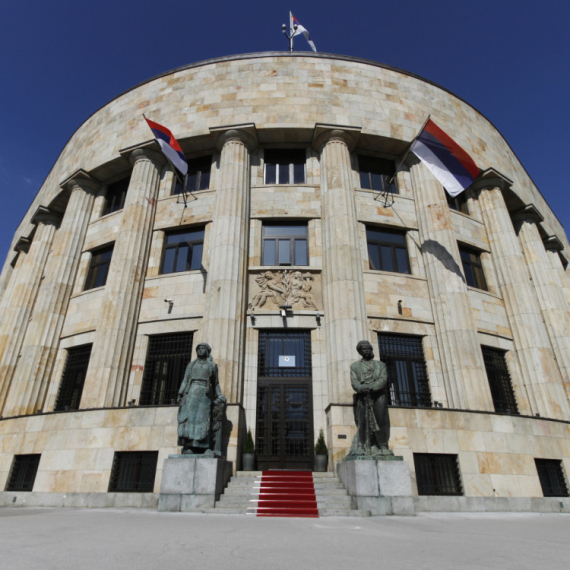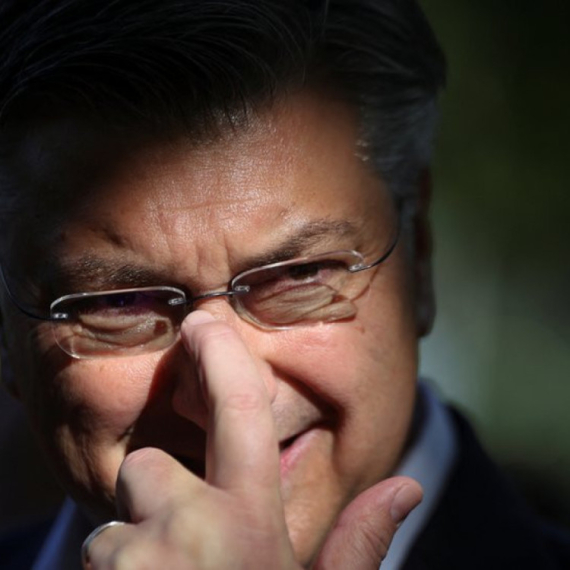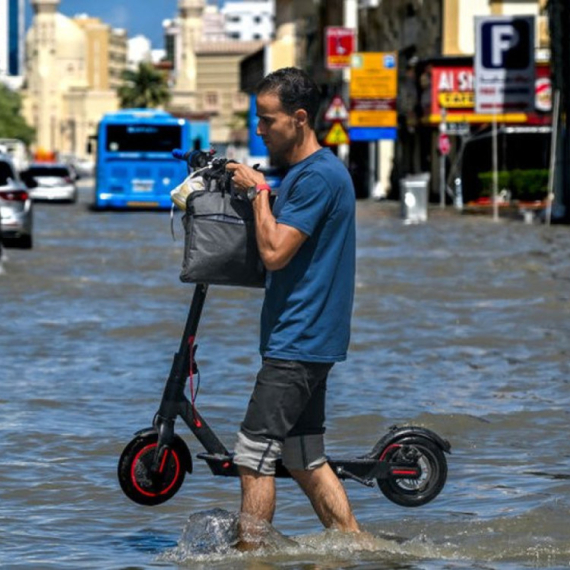Serbia “obstacle to region’s progress”
Serbia’s tendency to dominate its neighbors is the main obstacle to progress of the countries of the region, says Helsinki Committee President Sonja Biserko.
Thursday, 14.04.2011.
12:24

Serbia’s tendency to dominate its neighbors is the main obstacle to progress of the countries of the region, says Helsinki Committee President Sonja Biserko. She said that in an opening speech at the European Parliament and the Western Balkans meeting. Serbia “obstacle to region’s progress” Biserko pointed out that “Bosnia-Herzegovina is facing constant internal crisis, mainly due to Belgrade’s policy” while “the International Court of Justice (ICJ) advisory opinion confirmed legality of Kosovo’s independence, which did not change Serbia’s position on Kosovo”. The NGO head has warned that “the current situation in the region causes much concern because some countries in the region do not have important prerequisites for true democratic consolidation and true improvement of relations with their neighbors”. She said that poor political consolidation and poor market economy were accompanied by constant ethnic spats. Biserko advocated new involvement of the European Commission and the EU in support for Western Balkan countries that have been struggling to get the EU candidate status for years. In her opinion, “one of the biggest obstacles for a significant progress in the region is Serbia’s attitude toward its neighbors, especially its constant wish to have a dominating influence on them”. The Helsinki Committee for Human rights president said that this “violates faster democratic consolidation of its neighbors, development of true cooperation in the region and their progress in the EU and NATO accession”. “Prevailing opinion in Belgrade is that borders are still not final”, she said, adding that Bosnia-Herzegovina was especially exposed “because Belgrade officially encourages and supports not only the existing state but also Bosnian Serb leadership’s secessionist policy”. Biserko claims that Serbia “still has not decided whether its future lies in the European Union or in the so-called East”. She also criticized the Serbian authorities over war crimes proceedings, which showed how Belgrade saw “historical war events which were caused by Yugoslav People’s Army (JNA) and Serbian forces’ actions”. The NGO head believes that Belgrade is using population census in the neighboring countries “for a new strategy for maintaining relations of so-called Serb diaspora with the homeland”. Sonja Biserko (Beta)
Serbia “obstacle to region’s progress”
Biserko pointed out that “Bosnia-Herzegovina is facing constant internal crisis, mainly due to Belgrade’s policy” while “the International Court of Justice (ICJ) advisory opinion confirmed legality of Kosovo’s independence, which did not change Serbia’s position on Kosovo”.The NGO head has warned that “the current situation in the region causes much concern because some countries in the region do not have important prerequisites for true democratic consolidation and true improvement of relations with their neighbors”.
She said that poor political consolidation and poor market economy were accompanied by constant ethnic spats.
Biserko advocated new involvement of the European Commission and the EU in support for Western Balkan countries that have been struggling to get the EU candidate status for years.
In her opinion, “one of the biggest obstacles for a significant progress in the region is Serbia’s attitude toward its neighbors, especially its constant wish to have a dominating influence on them”.
The Helsinki Committee for Human rights president said that this “violates faster democratic consolidation of its neighbors, development of true cooperation in the region and their progress in the EU and NATO accession”.
“Prevailing opinion in Belgrade is that borders are still not final”, she said, adding that Bosnia-Herzegovina was especially exposed “because Belgrade officially encourages and supports not only the existing state but also Bosnian Serb leadership’s secessionist policy”.
Biserko claims that Serbia “still has not decided whether its future lies in the European Union or in the so-called East”.
She also criticized the Serbian authorities over war crimes proceedings, which showed how Belgrade saw “historical war events which were caused by Yugoslav People’s Army (JNA) and Serbian forces’ actions”.
The NGO head believes that Belgrade is using population census in the neighboring countries “for a new strategy for maintaining relations of so-called Serb diaspora with the homeland”.
























































Komentari 52
Pogledaj komentare